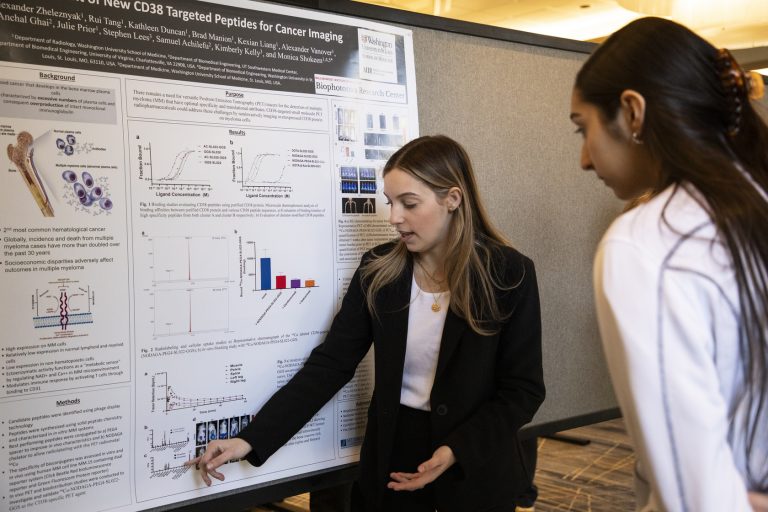Research Computing and Informatics Facility
Frequently Asked Questions
Begin the process by completing this Account Request Form.
- Access to a professionally managed High-Performance Computing (HPC) system with high throughput and volume shared storage over an InfiniBand interconnect. See current hardware list here.
- Access to pre-installed software packages, compilers and libraries that support molecular modeling, genomic analysis, advanced imaging, statistics and mathematical analysis.
- Consultation with RCIF staff on parallel computing, artificial intelligence (AI) and machine learning (ML) workload development and deployment, and optimizing workflows.
- Access to a secure, distributed storage system for large-scale or secure storage needs (SDS).
- Data management services for internally and externally acquired imaging data as well as associated non-imaging data (CNDA).
- Access to anonymized clinical data for use in research (MIRRIR).
- Development and management of custom, branded, data management portals.
- Custom clinical data query and retrieval services.
- Custom data management and processing pipeline programming.
- Request for data to be queried and acquired through a multitude of imaging and non-imaging datastores.
Our third generation cluster was designed in collaboration with our chosen vendor, Advanced Clustering Technologies, to meet our current and future computing needs with an emphasis on human imaging processing and deep learning, integrating twenty V100S General Purpose Graphical Processing Units (GPGPUs).
Our next generation cluster is currently being acquired and qualified. When anticipated complete in Q1 CY24, the system will add another 22 PB of shared storage and over 5x increase in GPU-accelerated flops with 2.4 PF (FP16) of NVIDIA A100 and H100 modular cards for running multi-card, multi-node training as well as a smaller workloads.
See current hardware list here.
The internal networking is based on Mellanox InfiniBand (IB) High Dynamic Range (HDR) switch. The outgoing network is protected by Washington University Next Generation Data Center firewall.
Below are steps required for an outside collaborator to access RCIF resources:
- You must have a sponsor at Washington University to get a guest WUSTL key
- Use your WUSTL key to complete a Guest Account Request Form
- Complete HIPAA-like training at your home institution or HIPAA 1010 training at Washington University
- Someone at Washington University must request VPN access through the university’s IT department.
Research Support
We currently store over 1800 imaging research studies, representing data from a wide range of multi-site and in-house studies for research across a broad range of neuroscience, disease, and other imaging research aims. The Central Neuroimaging Data Archive (CNDA) also manages thousands of non-imaging experiments, including neuropsychological, clinical, biomarker and behavioral data.
Software
CNDA is built on XNAT, a widely-used open source imaging informatics platform developed at MIR by Daniel Marcus, PhD. A number of data processing algorithms, such as Freesurfer, are run on CNDA data. CNDA supports containerized pipeline processing.
Hosting a Study
Access to CNDA is restricted to authorized investigators at Washington University School of Medicine. If you have any questions or would like more information, email Jenny Gurney.
Research Support
Through an agreement with clinical providers, MIRRIR provides investigators access to anonymized clinical imaging sessions.
Software
Like CNDA, MIRRIR is built on XNAT. MIRRIR supports containerized pipeline processing through its XNAT container services plugin.
Access to Clinical Data
Projects must be approved by an oversight committee and obtain necessary IRB approvals. For more information, email Jenny Gurney.



